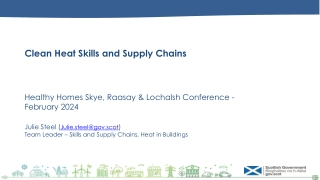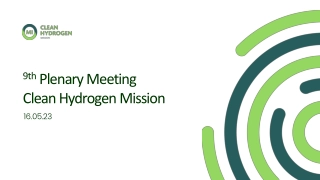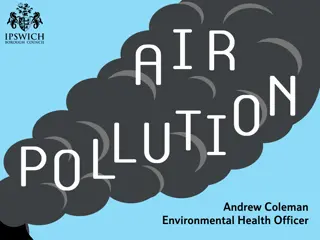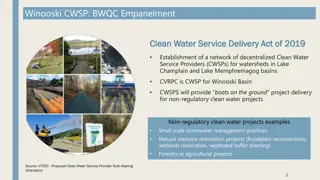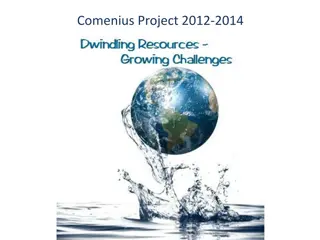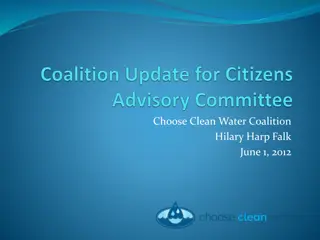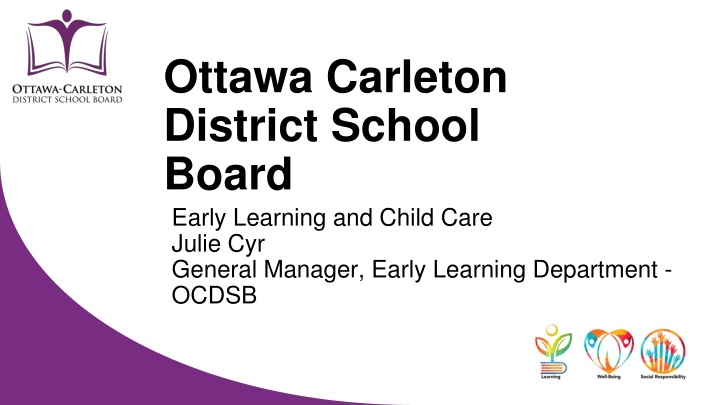
Early Learning and Child Care Development Initiatives in Ottawa
Explore the evolution of early learning and child care initiatives in Ottawa, including the implementation of Full-Day Kindergarten and various programs offered by the Ottawa Carleton District School Board. Learn about the Ontario Early Years Policy Framework and priority areas for action in promoting early childhood education.
Download Presentation

Please find below an Image/Link to download the presentation.
The content on the website is provided AS IS for your information and personal use only. It may not be sold, licensed, or shared on other websites without obtaining consent from the author. If you encounter any issues during the download, it is possible that the publisher has removed the file from their server.
You are allowed to download the files provided on this website for personal or commercial use, subject to the condition that they are used lawfully. All files are the property of their respective owners.
The content on the website is provided AS IS for your information and personal use only. It may not be sold, licensed, or shared on other websites without obtaining consent from the author.
E N D
Presentation Transcript
Ottawa Carleton District School Board Early Learning and Child Care Julie Cyr General Manager, Early Learning Department - OCDSB
Our journey in Early Learning and Child Care? June 2009, Charles E. Pascal, Special Advisor on Early Learning, created a report to the Premier and the Ontario Government With Our Best Future in Mind: Implementing Early Learning in Ontario to use as a plan of action (p.3) going forward with the early years vision. Recommendations (p. 16) The Early Years Policy Framework The work started in 2010 and by 2014 the majority of the framework was implemented.
Ontario Early Years Policy Since 2014, Publicly funded school boards became active agents of early years program planning and delivery. School boards continue to play an even greater role in integrating and coordinating early years programs and providing an environment where services can be collocated for the convenience of parents and families. Ontario Early Years Policy Framework
Priority Areas for Action for the Ottawa Carleton District School Board (OCDSB) 1. Full-day Kindergarten 2. Delivery of before and after school child care programming referred to the Extended Day Program 3. Delivery of Early Learning Centres for toddler and preschool children 4. Delivery of the EarlyOn Child and Family Centres
Full Day Kindergarten Since September 2014, all four and five-year old children attending public school have access to full-day kindergarten. The provincial government requires that child care be offered on regular school days for 4 to 12 years old when there is sufficient demand , either as an extended day program operated directly by the school board or as a before and after school program offered by third party licensed child care centres. Our school board has both options depending on the school.
Full Day Kindergarten FDK falls under The Education Act, Ministry of Education. The implementation of FDK also recognized the vital skill set of Early Childhood Educators in early learning environments. In FDK classrooms, the Teacher and Early Childhood Educator work as a team to deliver curriculum while also promoting a play-based learning approach.
Early Learning and Child Care Ottawa Carleton District School Board (OCDSB) At a glance, we currently have: 114 elementary schools; 67 Licensed Extended Day Programs (EDP) supporting over 4,300 children; 3 Licensed Early Learning Centres (Toddler [18 months] and Preschool [2-6 years]) supporting 117 children; 8 EarlyON Child and Family Centres: supporting caregivers, child care providers and children, offering programs from birth to age 6;
Early Learning and Child Care Ottawa Carleton District School Board (OCDSB) 6 Child Care programing to support adult learners; English as a Second Language (ESL), Language Instruction for Newcomers to Canada (LINC), and Literacy and Basic Skills (LBS) programs with on-site childcare. The Centres provide care for 3,600 children. Child Care agreements with Third Party not for profit Child Care Operators in over 28 OCDSB Elementary Schools.
Early Childhood Workforce Ottawa Carleton District School Board (OCDSB) 861 Early Childhood Educators (qualified ECEs); 126 Early Learning Assistants (not qualified ELAs); The majority of our ECEs are unionized under Ontario Secondary School Teachers Federation (OSSTF) Approximately 30 ECEs and all the ELAs are union exempt, therefore not represented by a union.
OCDSB Early Learning and Child Care Department In order to ensure the daily operations of all our programs,expansion of services, capital child care investment, support the delivery of Full Day Kindergarten and support our community partners offering early learning programs the OCDSB has created an Early Learning Department. We are a mighty team of professionals comprised a General Manager, a program Manager, Team Managers (all Registered Early Childhood Educators), office assistant and financial analyst.
OCDSB Early Learning and Child Care Operations Currently operate 70 licensed Child Care and Extended Day Programs; Not-profit; Public school board; Multiservice and multi-sites provider; Legislative requirements: Education Act; and Child Care and Early Years Act, 2014 Signed the Canada-Wide Early Learning and Child Care Agreement and a contribution agreement with the City of Ottawa s Children s Services; Support to community partners offering a variety of services.
Advantages for the OCDSB Better consistency of the expansion and flexibility of services across the District; Increased recruitment for student registration; Ensuring quality and access to programs run by the Early Learning Department; Programs that are aligned with the OCDSB Strategic Plan; Better position for the delivery and expansion of the CWELLC. More children and families in school buildings prior to starting school;
The advantages for the OCDSB Develop ongoing monitoring and intervention; Develop specific programming goals and practices based on the OCDSB data; Develop strong relationships with parents and/or caregivers to prepare for the transition to school; Support early identification for children that require further intervention or additional supports prior to kindergarten; Supports succession planning for RECEs that would like to move on to administrator roles;
The advantages the OCDSB Promotes a continuum of pedagogical practices; Increased parental trust and confidence in the educational system; Promotes an inclusive and diverse environment; Supports the sharing of information in order to provide that warm handover to the school; Serves as a community hub offering families access to schools, childcare services, community playgroups, caregiver resources, before and after-school programs, and recreational activities;
The challenges for the OCDSB Regulatory Compliance: we fall under two legislative regulations: Education Act and Child Care and Early Years Act, 2014; Compliance with these regulations can be complex and time- consuming as they do not always align with school operations and early learning and child care operations. The administrative requirements for implementing CWELCC have heightened the administrative burden and eroded some of our operational independence.
The challenges for the OCDSB Securing adequate funding to cover operational costs; Salaries and Fees: Salaries are negotiated between the union and the province. Minimal control of the costs in relation to salaries. Fees for children 6 years and under are under an increase freeze due our CWELCC agreement; Staffing: Recruiting, training, and retaining qualified staff is paramount. The competition for skilled professionals in the child care sector has reached a critical crisis.; Facilities: meeting legislative requirements, sharing the space, cost in increased maintenance, rentals fees, etc.
The challenges for the OCDSB The ballooning of waitists for all our child care programs; Can be confusing for families, although in theory, the EDP is is a continuum of the school day, the RECEs work both in school and in the program, it is two separate programs that cannot operate in the same way. The number of children that require additional supports due to special educational needs has considerably increased; Community Partnerships: limited community resources or fragmented service delivery systems;
Who owns child care? Who should own child care? Overall, a public childcare system has the potential to: significantly enhance families' well-being, economic prospects; and provide a structured and nurturing environment for children, enhancing their cognitive, social, and emotional developments. Making it a crucial policy consideration for Canada. The current landscape marks an important starting point. However, there is still much advocacy needed to truly establish a comprehensive public early learning and childcare system.


